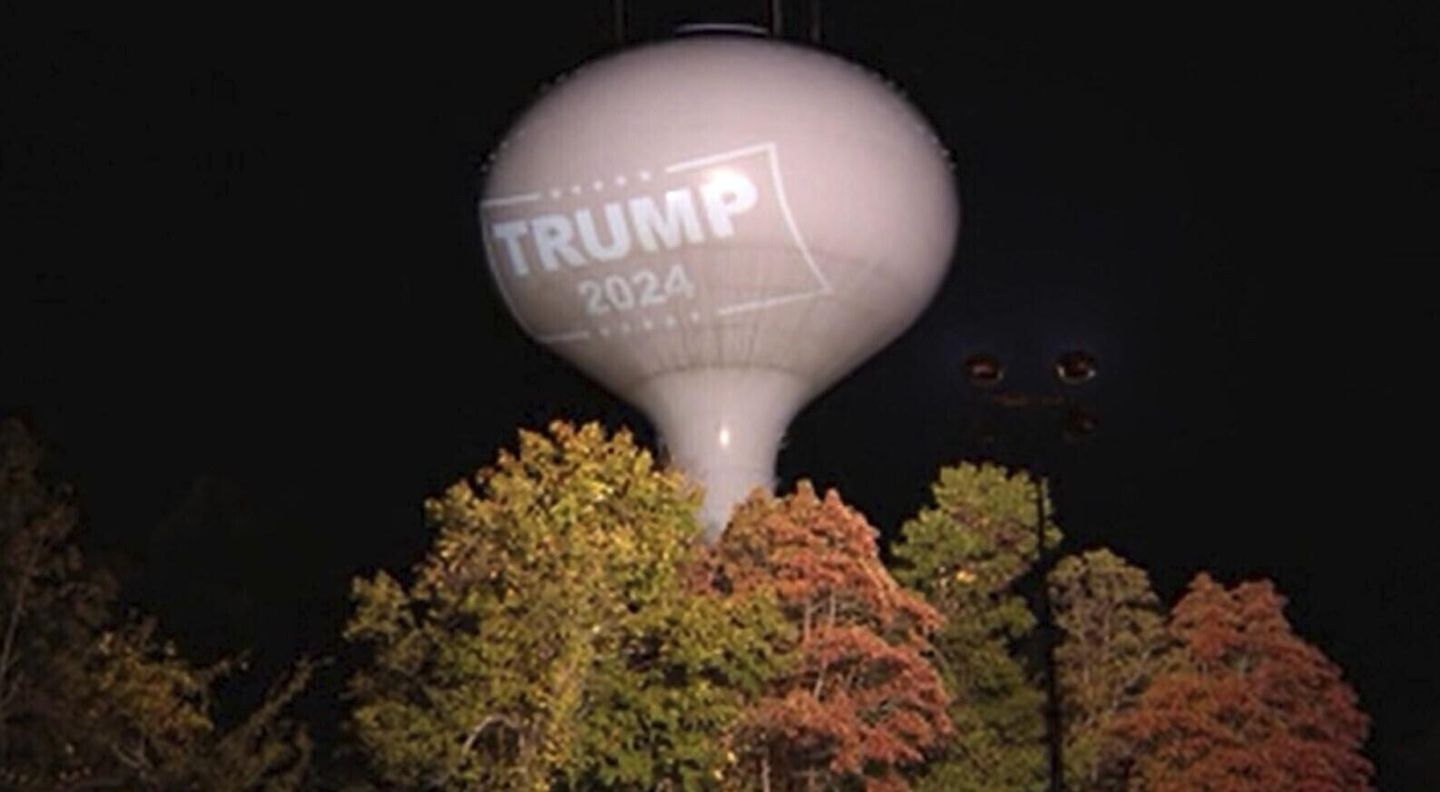In the small town of Springfield, Massachusetts, a controversy has erupted over a political projection on a municipal water tower. The town sent a cease-and-desist letter to a property owner who projected a “Trump 2024” sign onto the side of the water tower, sparking a debate over free speech, property rights, and the role of government in regulating political expression.
The incident began when local resident John Smith, a vocal supporter of former President Donald Trump, decided to use a powerful projector to display the message “Trump 2024” on the side of the water tower. The projection was visible from miles away and quickly garnered attention from residents and passersby.
Some residents praised Smith for exercising his right to free speech and expressing his political beliefs in a creative way. Others, however, were outraged by the display, viewing it as a violation of the town’s aesthetic standards and an inappropriate use of public property.
Town officials were quick to respond to the controversy, issuing a cease-and-desist letter to Smith and ordering him to immediately stop projecting the sign onto the water tower. The letter cited a town ordinance that prohibits the use of public property for political advertising or any other commercial purposes without prior approval.
Smith, however, refused to comply with the town’s order, arguing that he had a right to express his political views on his own property and that the town’s actions were an infringement on his First Amendment rights. He vowed to continue projecting the sign onto the water tower until the town backed down.
The dispute quickly escalated, with both supporters and opponents of the sign taking to social media to voice their opinions. Some residents organized protests in support of Smith, while others called for stricter regulations on political displays in public spaces.
As tensions mounted, the town council held a special meeting to discuss the issue. Council members listened to impassioned arguments from both sides of the debate, weighing the importance of free speech against the need to maintain public order and protect the town’s image.
After hours of deliberation, the council voted to uphold the cease-and-desist order, citing concerns about the potential for the sign to incite violence or disrupt the peace. The decision was met with mixed reactions, with some residents applauding the council’s decision to enforce the town’s ordinances, while others accused them of trampling on Smith’s rights.
In the days that followed, the controversy continued to simmer, with supporters of Smith launching a petition to overturn the council’s decision and opponents calling for stricter enforcement of the town’s rules on political expression. The town became divided, with neighbors and friends finding themselves on opposite sides of the debate.
Eventually, a compromise was reached between Smith and the town council. Smith agreed to limit the hours during which he could project the sign onto the water tower and to include a disclaimer stating that the message was his personal opinion and not endorsed by the town. In exchange, the council agreed to drop the cease-and-desist order and allow Smith to continue displaying the sign, albeit with certain restrictions in place.
The resolution of the controversy was met with a mixture of relief and disappointment from residents on both sides of the issue. Some saw it as a victory for free speech and individual rights, while others viewed it as a capitulation to political pressure and a failure to uphold the town’s standards.
As the dust settled on the water tower controversy, the residents of Springfield were left to ponder the lessons learned from the experience. The incident had raised important questions about the limits of free speech, the role of government in regulating political expression, and the need for civility and respect in public discourse.
In the end, the Trump 2024 sign may have come down from the water tower, but its impact on the town and its residents would be felt for years to come. It had sparked a debate that forced the community to confront difficult issues and grapple with competing values, leaving a lasting impression on all who had been touched by the controversy.









